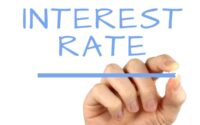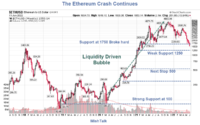Higher Rates Starting to Hit US Profits, Goldman Strategists Warn
(Bloomberg) — Rising rates are starting to weigh on US corporate profits and if they stay higher for longer it may upend a historical trend, according to Goldman Sachs Group Inc. strategists.
Most Read from Bloomberg
Borrowing costs for S&P 500 companies have ticked up by the largest amount in nearly two decades, on a year-on-year basis, strategists led by David Kostin said. If they remain at high levels for an extended period of time, this may prevent firms from taking on more leverage, hitting long-term profitability.
For decades, falling interest costs and greater leverage have accounted for nearly one-fifth of an overall 8.8 percentage points increase in the return on equity (ROE) of S&P 500 firms, according to the strategists.
“In the new ‘higher for longer’ rates environment, the key risk for S&P 500 ROE will be higher interest expenses and lower leverage,” Kostin wrote in a note published Friday. “A scenario in which interest expense and leverage persistently weigh on ROE would be a departure from the historical trend.”
US stocks have struggled since the start of August, with the S&P 500 dropping about 6.5% on rising bond yields and subdued economic growth expectations. While the Federal Reserve paused its rate-hike campaign in September, hawkish messages from officials pushed the 10-year Treasury yield above 4.6% — its highest level in nearly 16 years.
Against this backdrop, the strategists have identified stocks with low vulnerability to higher borrowing costs, including Cisco Systems Inc., Costco Wholesale Corp., Paychex Inc., Cognizant Technology Solutions Corp., as well as Visa Inc.
Separately, Goldman strategists said US technology stocks may be about to turn a corner after the Nasdaq 100’s biggest monthly decline this year.
The S&P 500’s profitability, ex-financials, has continued to decline this year from its peak in the second quarter of 2022, with increased interest expenses being the largest drag on earnings, the analysts wrote. They expect ROE to stabilize in 2024 with a low likelihood of increasing due to subdued economic growth.
Most Read from Bloomberg Businessweek
©2023 Bloomberg L.P.
[ad_2]
Source link


